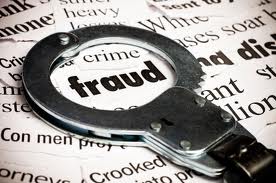Education verification is an important part of your general employee background check. If you believe that this has lesser importance than a criminal background check, consider the case of Laura Callahan who resigned as Director of the Department of Homeland Security in 2004.
It was established that Laura Callahan’s doctorate was obtained from Hamilton University, a known ‘diploma mill’. That is a so-called educational establishment that offers diplomas and doctorates to students after little or no study. Subsequent investigation discovered that a minimum of 28 other senior employees had obtained their qualifications from diploma mills. In other words, they were not suitably qualified for the jobs they were holding.

Diploma mills are commonplace, and Columbia State University, for example was shut down in 1998 after an advertising campaign offering degrees within 27 days! That was another diploma mill, and that is one of the reasons for education verification being so important.
The requirement for qualification has become very widespread, and it is little wonder that so many job applicants are tempted to at least overstate their qualifications if not downright lie. Most company positions now require an education qualification of some form or another, and if you search for ‘fake degrees’ on Google you will find several pages offering them. It’s a problem.
The temptation to provide false educational credentials is overwhelming since the rewards for success in fooling your potential employer can be high. The General Accounting Office reported in 2004 that up to 200,000 federal employees had falsified their resumes. These are the ones that were detected. How many more are there that were not detected, and how many in all occupations are involved, not just federal employees? So do not think that you are immune to this; you probably already have employees on your payroll that have falsified their resumes.
This is a serious problem, and a breach of faith on the part of the employees who do this, especially where the knowledge provided in studying for a degree is necessary in the job, and its absence could affect all of the other employees in the company. It is also a serious error on the part of the employers who offer them employment without carrying out suitable education verification.
As more and more qualifications, diplomas and degrees are requested for more and more jobs where previously they were not required, education verification becomes increasingly important. Candidates are highly motivated to provide degrees, obtained by whatever means they can, and up to 20% of employers in the USA now require verification of diplomas and degrees from the college or university that awarded them.
Some universities offer an online verification service that involves providing the student with a password that they can pass on to a prospective employer. This provides the employer with a portal into the student’s records that confirm the qualification awarded. Although this does not address the problem of diploma mills, it at least provides some security. A list of accredited educational facilities would help reduce the need for full education verification and the issue of not knowing what is and is not a diploma mill.
Diploma mills may be breaking the law if they offer these diplomas to students in the knowledge that are being used for job applications, and the applicant is committing a criminal offense in many jurisdictions by presenting them. A federal law is required on this issue, and that would possibly help employers with this problem.
In the meantime, employers must not overlook education verification when carrying out employment background checks. It is easy to omit this essential factor of employee screening, but the employment of an unqualified nurse or doctor can be just as damaging as that of a shop floor employee with a record of violence. The cost to the employer could ultimately be considerably higher.
It should not be assumed that any qualification is genuine, and if a specific diploma or degree is required for a job, it should be verified that the candidate does indeed possess that, and that it has been awarded from a recognized educational or training establishment.
Education verification should be included in the employee screening that all companies should carry out, preferably by hiring a professional investigator to carry it out. It is too important and skilled a job to try yourself unless you have employees trained in how to carry out background checks, and the penalties for failure can be very high.

 Follow
Follow



